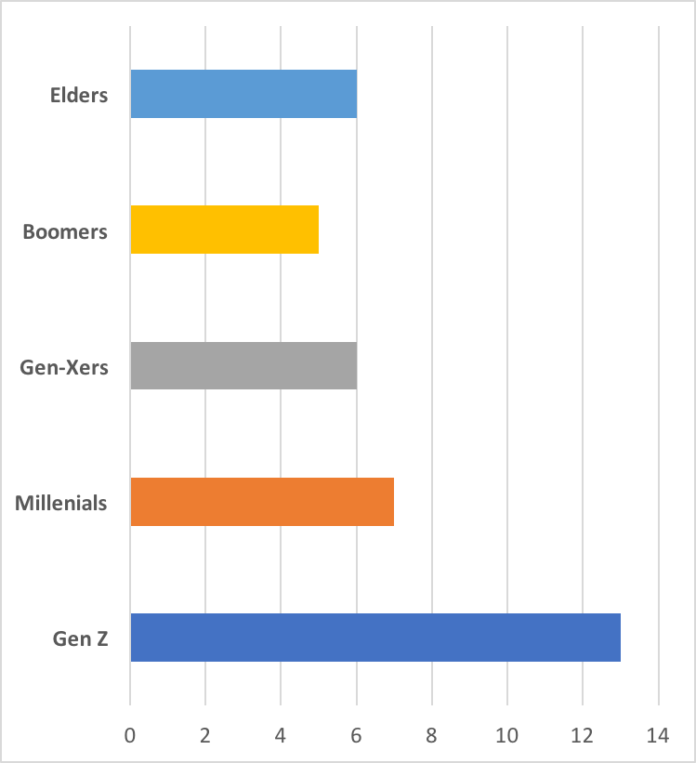By Thomas Moran | Staff Writer
New research shows the percentage of Generation Z, people born between 1999 and 2015, that identifies as atheist is double that of the general U.S. adult population. The Barna Group conducted the study in partnership with the Impact 360 Institute and found that 6 percent of the adult population identifies as atheist, compared to 13 percent of teens.
According to the study, Generation Z is considered the first “post-Christian” generation because fewer and fewer individuals identify as Christian or religiously affiliated. While spirituality has not been altogether abandoned, organized religion is losing traction rapidly. But what is causing the change?
Baylor sociology professor Dr. Paul Froese specializes in sociology of religion, culture and politics. He said there are many variables encouraging the trend, but a few stand out as a highly probable factors.
Younger generations are normally less religious, Froese said. In their youth, people tend to drop out of the church and are more inclined to be non-believers. As time goes on and those people start families, they tend to return to religious belief.
Froese also said modern society is becoming too busy for organized religion. As the world becomes more fast-paced and interconnected than ever before, organized religion has taken a place on the back burner.
“One thing that it often comes down to is that there is less time to be religious in the modern world,” Froese said. “With all kinds of activities and groups to belong to and internet to search, people are finding that they don’t have the time or they don’t think it’s important to put the time into organized religion.”
Princeton junior Olivia Haskin has noticed the speed of the modern world detracting from time spent on religious activities among her age group. However, she said another potential factor is that young people no longer feel the need for God due to societal advancements.
“I think it can be partially attributed to the fact that people don’t feel a need for God anymore,” Haskin said. “There are so many answers to problems that people used to look to God to answer. There’s medicine for diseases now, and there’s technological solutions for other hardships … I think young people just don’t care as much anymore.”
However, Generation Z’s decreased involvement in religion cannot be solely attributed to emotional apathy, Froese said. It is not a matter of not knowing or not caring to know but instead a matter of critically considered belief that God does not exist. It is not so much the absence of belief, but the belief in an absence, Froese said.
An increase in public discourse and academic reports on atheism might also be a factor in the decrease of religious affiliation among younger generations, Froese said. Atheism has become far more socially acceptable, and there is less negative stigma associated with identifying as a non-believer.
“Atheism now an option in a way that it wasn’t before,” Froese said. “It allows people to openly be atheist.”
Atheism has limits that religions do not, Froese said. Atheism cannot offer the sense of peace or security that religion has offered the human race for thousands of years.
“One constant in human history is that humans are always creating new religions,” Froese said. “That is a constant. There is something about those beliefs or beliefs in the supernatural that provide humans with a sense of solace, a sense of meaning, a sense of purpose … so, I don’t think you’ll ever see a time when atheism is the majority.”
Only time will show whether the trend toward atheism will continue or if the younger generation will return to religion as they age.




